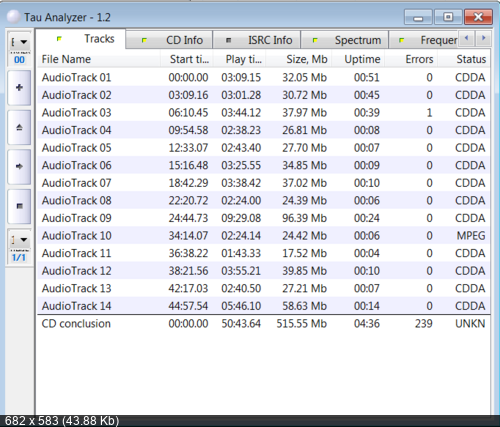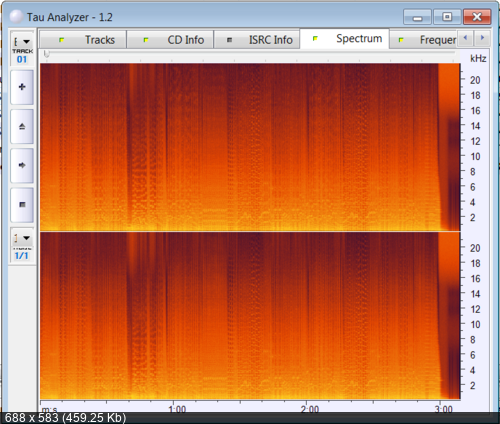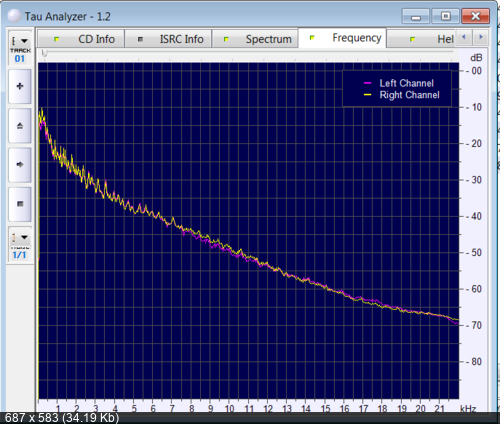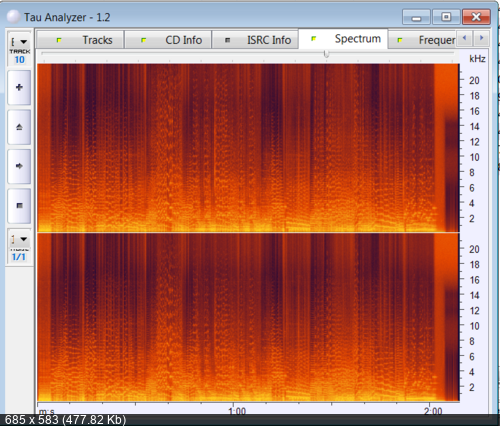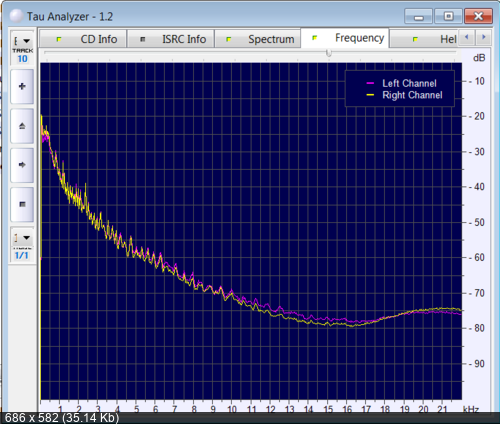| Вход · Регистрация · Восстановление пароля | |
(Classical) [CD] Dmitri Shostakovich
|
| Главная » Классическая и современная академическая музыка » Оркестровая музыка (lossless) | Добавить в закладки |
Автор |
Сообщение |
|---|---|
Musicgate |
-
 Релиз подготовлен Proper SelfMade Lossless Group "Always Proper, Ever SelfMade"-Dmitri Shostakovich (Дмитрий Шостакович) - Jazz Suites (National Symphony Orchestra of Ukraine, Conductor Theodore Kuchar) - 2004- 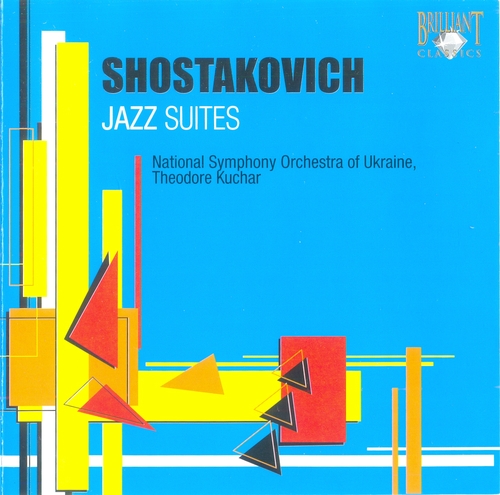 Жанр: Classical Жанр: ClassicalНоситель: CD Страна-производитель диска (релиза): Netherlands Год издания оригинала: Год переиздания: Издатель (лейбл): Brilliant Classics Номер по каталогу: 8480 Страна исполнителя (группы): Ukraine Дата / место записи: Аудио кодек: FLAC (*.flac) Тип рипа: (tracks + .cue) Битрейт аудио: lossless Наличие сканов в содержимом раздачи: full scans Продолжительность: 50:43 Источник (релизер): Моя коллекция, мой рип Трэклист: Suite For Stage Variety Orchestra No.1 (Jazz Suite No. 2) 1. March - 3:04 2. Dance No.1 - 2:56 3. Dance No.2 - 3:39 4. Little Polka - 2:33 5. Lyric Waltz - 2:38 6. Waltz No.1 - 3:21 7. Waltz No.2 - 3:34 8. Finale - 2:13 9. Overture On Russian And Kirghiz Themes Op.115 - 9:19 Jazz Suite No. 1 10. Waltz - 2:19 11. Polka - 1:38 12. Foxtrot - 3:47 13. Novorossijik Chimes - 2:32 14. Festive Overture Op.96 - 5:46 Composed By – Dmitry Shostakovich Recorded in June 1-8, Grand Studio of the National Radio Symphony Company of Ukraine in Kiev   
Exact Audio Copy V1.3 from 2. September 2016 REM GENRE Classical [CUETools log; Date: 10.07.2020 11:19:46; Version: 2.1.5] Track | Start | Length | Start sector | End sector foobar2000 1.3.3 / Dynamic Range Meter 1.1.1 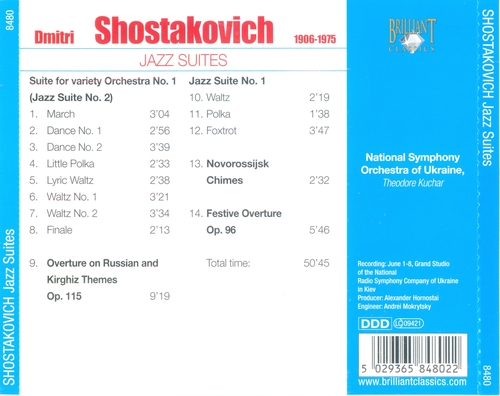 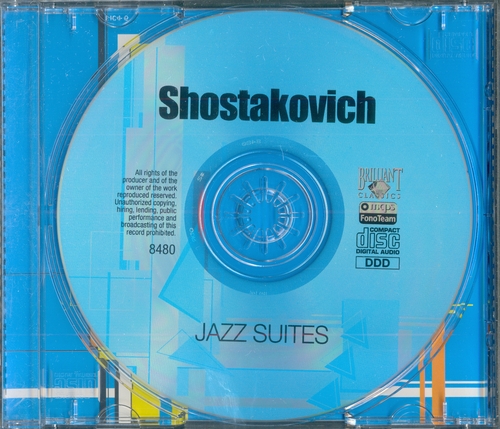 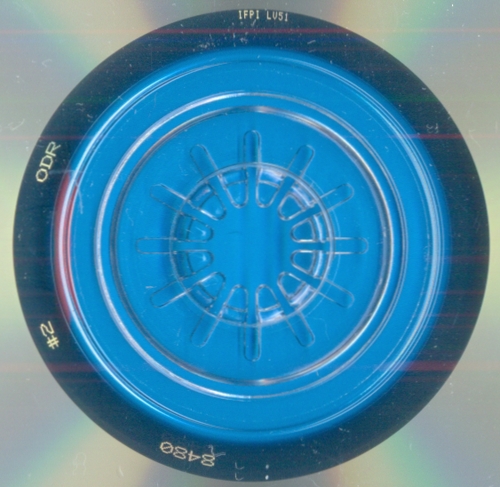 Shostakovich was greatly attracted to jazz and the at the time extremely popular foxtrot being quite a craze in Moscow and Leningrad. His first and very popular attempt was his witty and skilful arrangement for orchestra of the foxtrot Tea for Two, Tahiti Trot, later to be incorporated in his ballet The Golden Age. This 'siding with Western bourgeois decadence' caused him some trouble with the authorities, ln his ballets the composer also explored jazz trends of the 20's and 30's but is was not until 1934 that he decided to write a work especially for Jazz Orchestra - the First Jazz Suite. This was surprisingly the result of a Leningrad competition for a specific work in the Jazz idiom and the resulting suite took the form of three movements based on dance forms - the Waltz, Polka and Foxtrot. There is nothing particularly raucous about the music but rather an attempt to integrate the idea of Jazz into a more serious format.
A second Jazz Suite followed in 1938, written specifically for the State Jazz Orchestra of Viktor Knusnevitsky but the score was lost somehow during the ensuing War. The Suite has been reconstructed from a piano score by Gerald McBurney who arranged three movements for a London Promenade Concert in 2000, drawing material from earlier theatre and film scores (including "The Gadfly"). The suite was later enlarged to eight numbers and has enjoyed a certain popularity from then on; the scoring places attention on the accordion and saxophone giving an essence of jazz or theatre orchestra rather than being specifically jazz music - hence its designation as a suite for promenade orchestra. As well as in the alternative jazz music, Shostakovich showed a keen interest in music of ethnic groups other than the strictly Russian element of the Union. Perhaps best known of these influences was his interest is Jewish folk music and the position of the Jewish minority in the country - works such as "Babi Yar" from the Thirteenth Symphony and the masterful "From Jewish Folk Poetry". As well as these influences, he concerned himself with the music of the southern area of Kirghizia - a region bordering on part of neighbouring China. ln 1963 he composed an "Overture on Russian and Krighiz Folk Themes" ostensibly celebrating the hundredth anniversary of the region's incorporation into Russia. The piece, hardly a masterwork, contrasts the folk music of the region with that of its Russian neighbours. Another nod to the southern areas of the country comes in the "Novorossisk Chimes"- a setting of the melody "Fire of Eternal Glory", a patriotic sounding if exceedingly brief hymn to the port of Novorossisk on the Black Sea dating from 1960. It was originally written for the chimes of a clock in Novorossisk. From September 27 1960 onwards it has been played there hourly on tape. The Festive Overture dates from 1954 and has celebratory fanfares and a light-hearted tunefulness. It was written soon after both Stalin's and Prokofiev's deaths in March 1953. Stalin's death meant that the threat to Shostakovich and other Soviet artists from the Dictator suddenly came to an end. The new leader was to be Kruschev and there followed a thaw in cultural matters which it would too easy to see expressed in a light-hearted positive work such as the Festive Overture. The death of Profoviev meant that Shostakovich was now, without doubt, Soviet Russia's major composer. Для того, чтобы скачать .torrent Вам необходимо зарегистрироваться |
| Быстрый ответ |
|---|
Вы должны войти в систему, прежде чем совершить данное действие. |

